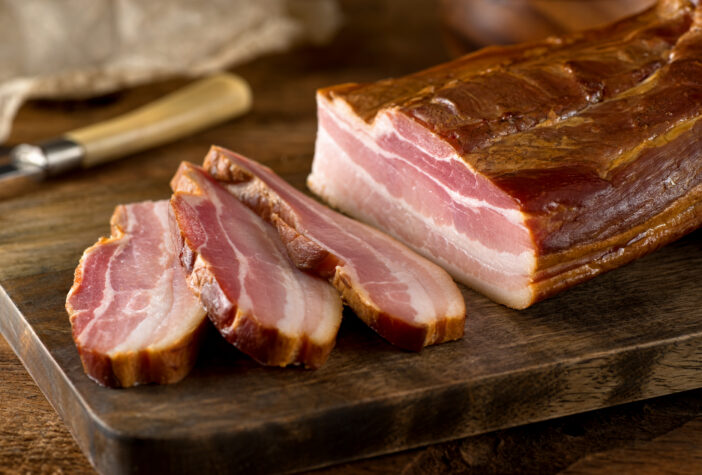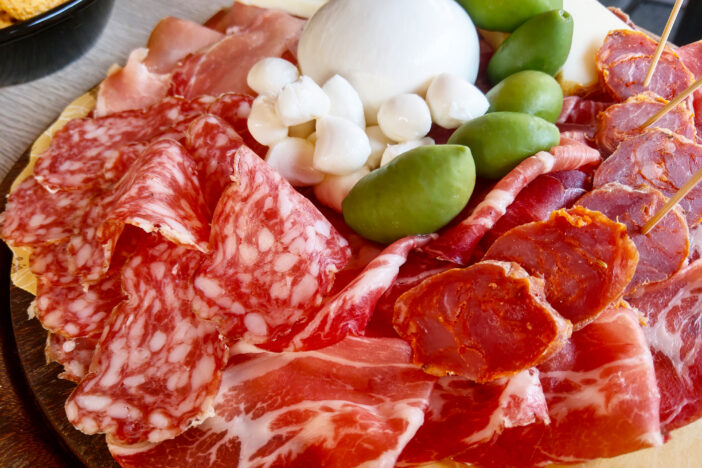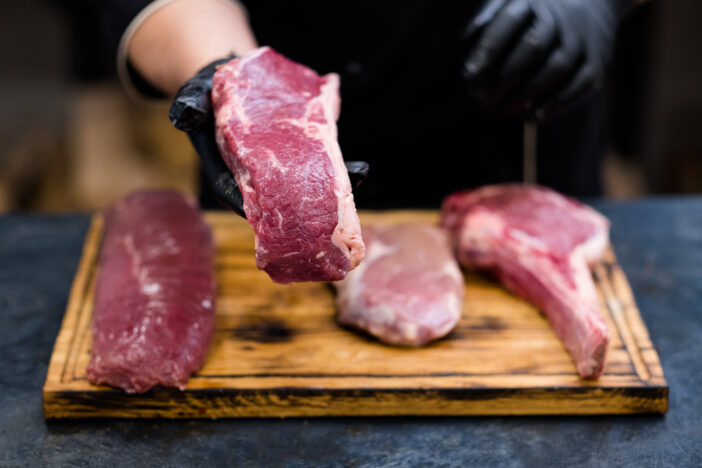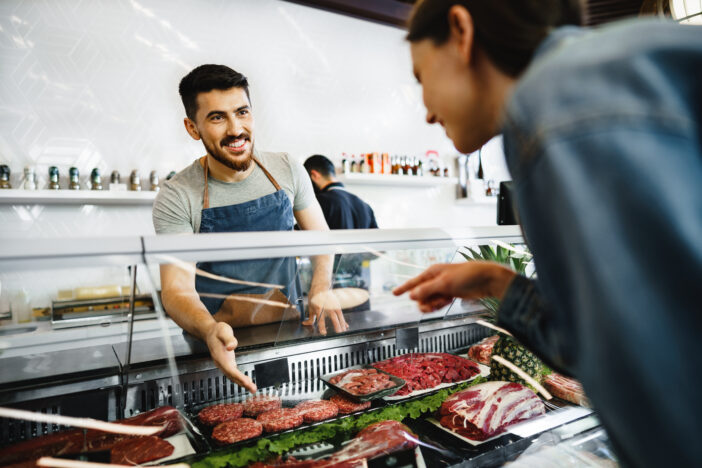7 Types of Locally Sourced Artisan Meats to Enjoy for Rich Flavors
Explore various locally-sourced artisan meats like grass-fed beef, heritage pork, and specialty poultry. Learn how to identify high-quality meats and where to find them, supporting local economies and enjoying popular recipes.

Discover the rich flavors and sustainable benefits of locally sourced artisan meats. Your guide to the best cuts and where to find them starts here.
Disclosure: As an Amazon Associate, this site earns from qualifying purchases. Thank you!
Exploring the Types of Locally Sourced Artisan Meats

Dive into the various types of locally sourced artisan meats. Each offers unique flavors and sustainable benefits.
Beef Varieties
Artisan beef includes grass-fed, dry-aged, and Wagyu. Grass-fed beef offers a leaner, richer taste. Dry-aged beef is known for its deep, buttery flavor. Look for Wagyu for its intense marbling and tenderness.
Pork Options
Discover heritage breeds like Berkshire and Tamworth. Berkshire pork is juicy and flavorful. Tamworth offers a robust, savory profile. Seek out pasture-raised for the best flavor and ethical farming practices.
Poultry Selections
Artisan poultry ranges from free-range chicken to heritage turkeys. Free-range chickens have a firmer texture and fuller flavor. Heritage turkeys are known for their rich, traditional taste. Duck provides a gamey, luxurious option.
Other Unique Meats
Consider bison, venison, and rabbit. Bison is lean with a sweet flavor. Venison offers a gamey, complex taste. Rabbit is tender and mild, perfect for unconventional dishes.
How to Identify High-Quality Artisan Meats

When it comes to buying artisan meats, distinguishing top-tier quality is essential. Here’s what you should look for:
Evaluating Freshness and Quality
- Check the Color: Look for meats with vibrant colors. Beef should be bright red, pork a rich pink, and poultry a light pink or yellowish hue.
- Smell Matters: Fresh meat should have a clean, neutral smell. Any off-putting odor is a red flag.
- Texture and Firmness: Press the meat; it should spring back. Avoid any meat that’s too soft or squishy.
- Marbling: Fine, evenly distributed fat, known as marbling, indicates flavor and tenderness in beef cuts.
- Certification Labels: Look for organic, grass-fed, or pasture-raised certifications. These labels often signify better quality and ethical practices.
- Local Sourcing: Purchasing from local farms reduces your carbon footprint and supports sustainable farming methods.
- Animal Welfare: Choose meat from sources prioritizing animal well-being, as good farming practices usually align with high-quality products.
- Transparent Practices: Opt for producers who are open about their farming and processing methods.
Knowing these key indicators will ensure you bring home the best artisan meats, rich in flavor and responsibly sourced.
Where to Find Locally Sourced Artisan Meats

Local Farmer’s Markets
Head to farmer’s markets for the freshest artisan meats. Look for stands selling beef, pork, poultry, and game meats from nearby farms. Ask about their farming practices and animal welfare standards to ensure you’re getting high-quality, responsibly sourced products.
Specialty Butcher Shops
Visit specialty butcher shops for expert-curated selections. These shops often source meats from local farms, offering cuts you might not find elsewhere. Chat with the butchers about their suppliers, and you might even score some insider tips on how to prepare the meats for maximum flavor.
Online Providers of Artisan Meats
Explore online providers for convenience and variety. Websites like Crowd Cow and Porter Road connect you with small farms, delivering top-notch meats right to your door. Read reviews and check for certifications to verify the authenticity and quality of their offerings.
Tips for Storing and Preparing Artisan Meats
Proper Storage Techniques
- Use refrigeration. Store artisan meats in the coldest part of your fridge to maintain freshness. Set your fridge temperature to 32-36°F.
- Choose vacuum-sealing. If you’ve got vacuum-sealed packaging, it extends shelf life by removing air and preventing spoilage.
- Opt for freezing. For long-term storage, freeze meats at 0°F. Use airtight containers or freezer bags to prevent freezer burn.
- Label your packages. Note the date of purchase and type of meat on labels. This helps track freshness and rotation.
Preparation Tips for Maximum Flavor
- Thaw correctly. Defrost meats in the fridge for 24-48 hours. Avoid room temperature thawing to maintain quality.
- Season generously. Use salt, pepper, and herbs to enhance natural flavors and marinade for added tenderness.
- Cook to the right temp. Use a meat thermometer. Beef and pork should reach 145°F, poultry 165°F, and unique meats like bison 160°F.
- Rest your meat. Let cooked meats rest for 10-15 minutes. This helps juices redistribute, ensuring tenderness.
- Slice appropriately. Cut against the grain for beef and pork for more tenderness. Slicing technique affects texture and flavor.
Supporting Local Economies Through Artisan Meat Purchases

When you buy artisan meats locally, you aren’t just getting quality products and supporting your community.
Impact on Local Farmers
Buying local meats directly benefits small farmers. Your purchase helps them thrive and maintain ethical farming practices. You’ll get fresher, more flavorful meat, ensuring top-notch meals.
Boosting Local Business
Supporting local butchers and markets keeps money within your community. It creates jobs, boosts the local economy, and fosters a sense of community. Plus, you often find exclusive cuts and specialty items you can’t get elsewhere.
Popular Recipes Using Locally Sourced Artisan Meats

Classic Dishes Reinvented
- Artisan Bacon Mac & Cheese: Enhance your mac & cheese with locally sourced artisan bacon. Crisp the bacon, mix with creamy cheese sauce, and bake until golden. It’s comfort food with a gourmet twist.
- Grass-Fed Beef Stroganoff: Upgrade traditional stroganoff with locally-sourced grass-fed beef. Sear the beef, and combine it with a rich, tangy sauce of sour cream and mushrooms. Serve over egg noodles for a hearty meal.
- Handmade Sausage Pizza: Elevate your pizza night using artisan sausages from your local butcher. Top your pizza dough with tomato sauce, mozzarella, and crumbled sausage. Bake until the crust is crispy and the cheese is melted.
- Lamb Kofta Bowls: Try lamb kofta bowls using locally sourced lamb. Combine ground lamb with spices, shape into meatballs or patties, and grill. Serve over rice with fresh veggies and a yogurt-tahini sauce.
- Pork Belly Tacos: Transform your taco game with succulent pork belly sourced from local artisans. Slow-cook the pork belly until tender, then crisp it up before adding it to tacos with pickled onions and cilantro.
- Venison Bolognese: Revamp the classic Italian sauce with locally sourced venison. Cook venison with tomatoes, herbs, and a splash of red wine. Serve over fettuccine for a rich, flavorful twist on a classic dish.
Frequently Asked Questions
What are artisan meats?
Artisan meats are high-quality, locally sourced meats that come from small-scale farms focusing on ethical and sustainable farming practices. They are often handcrafted, with attention to detail in the processing and flavoring.
Why should I choose locally sourced artisan meats?
Choosing locally sourced artisan meats supports local economies and small farmers, promotes ethical and sustainable farming practices, and ensures you get fresher and often more flavorful meat compared to mass-produced options.
Where can I find locally sourced artisan meats?
You can find locally sourced artisan meats at farmer’s markets, local butcher shops, specialty food stores, and through direct purchases from local farms. Some online platforms also offer delivery from local producers.
What are some benefits of eating artisan meats?
Artisan meats often have superior flavor and quality due to careful processing and ethical farming practices. They also support sustainability and animal welfare, contributing to environmental benefits.
Can you suggest popular recipes using artisan meats?
Yes, the article highlights recipes like Artisan Bacon Mac & Cheese, Grass-Fed Beef Stroganoff, Handmade Sausage Pizza, Lamb Kofta Bowls, Pork Belly Tacos, and Venison Bolognese. These dishes creatively incorporate locally sourced artisan meats into familiar recipes for a gourmet twist.
Are locally sourced artisan meats more expensive?
Locally sourced artisan meats can be more expensive than mass-produced meats due to their higher quality, ethical farming practices, and smaller scale of production. However, the benefits in taste, health, and sustainability often justify the cost.
How can I ensure the meat I buy is truly artisan?
Look for certifications from recognized organizations, buy directly from known local farms, or purchase from trusted local markets and specialty stores. Research the farms’ practices to ensure they meet artisan and sustainable standards.






